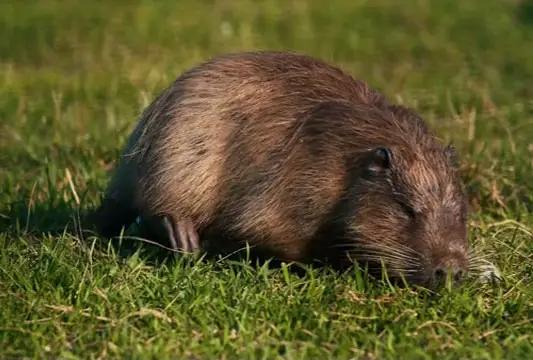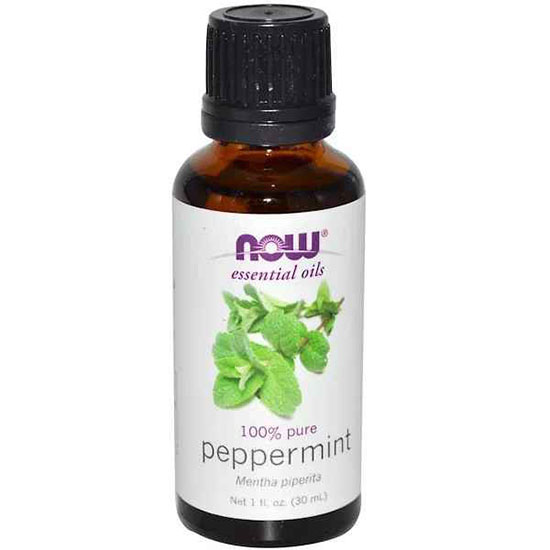Growing vegetables in your garden can be therapeutic and result in fresh produce for yourself and your family during the week. However, it’s not so therapeutic when you find out someone or something—like a rat—may have gotten to your vegetable garden before you did.
Unfortunately, rats are very attracted to vegetable gardens because of all the food they offer. Rats love to eat sweet corn, pumpkin, squash, and other root vegetables, so gardens with these items will more likely attract rodents.
Having rats infest your garden is already a headache in itself, but the next big concern is making sure the rodents don’t stick around long enough to enter your house as well. So, how do you prevent rats from ruining your prized vegetable garden? Read on to find out!
Are Rats Attracted to Vegetable Gardens?
Rats and other rodents are primarily attracted to vegetable gardens because it is an easy way to get food without dealing with prey. Gardeners often realize their vegetables have been gnawed through or completely missing because of this.
What Vegetables Attract Rats?
Rats are most attracted to vegetables like corn, pumpkin, squash, etc., because they are relatively sweet. Having said that, they will never pass up a free meal, especially if it is readily available in an open vegetable garden.
It’s also worth noting that rats eat both meat and vegetables, so if you leave your trash bags out near the garden, this creates the best possible scenario for the rats—and a complete disaster for you and your garden.
Do Overgrown Gardens Attract Rats?
Vegetable gardens can also attract rats if they are overgrown because the overgrowth provides accessibility. Rats also tend to look for debris in the garden like wood sticks, leaves, and overgrown vines, which can provide easy protection or be easy to transport to a nest-like shelter.
Additionally, overgrown vegetables that fall off their stems make it easier for rats to access and bring back to their home.
Signs of Rat Infestation in Vegetable Gardens
If you can catch the early signs of a rodent infestation in your garden, you can nip this problem in the bud sooner and avoid losing all your vegetables. Keep an eye out for these signs of rats:
- Holes and Burrows – One of the first signs that you have a rat problem is finding holes two inches wide in diameter. These are usually located near the garden but not too close so the rats can safely bring food back to their families.
- Runs and Tracks – These will also be two inches wide and run along the garden’s outside edges. Rats will always use the same pathways to and from the food to bring it back to their shelter. If you use a wood or metal frame or fence around your garden, you can also look for any markings along the walls or entryways.
- Rat Droppings – These are harder to spot in the dirt because rat droppings are small and circular. They dry out quickly, but a fresh dropping can indicate when the rats are coming by.
How to Prevent Rats from Infesting Vegetable Gardens
It can be tempting to want to use pesticides and poisons to rid your garden of rats. However, several natural methods can help repel them just as well and keep your garden free of chemicals.
Peppermint Oil
This is a great way to keep rats away without spraying chemicals or poison everywhere. Take cotton balls and douse them in peppermint oil. Place the cotton balls throughout the garden in various spots that are hidden and also near the plants.
Alternatively, you can spray the plant leaves and soil with peppermint, but it’s essential to add just a little bit and wait 48 hours to see if there is any reaction or damage to your vegetables before adding more. It’s also worth noting that too much peppermint could also affect the taste of your vegetables after harvest.
Keep the Garden Clean
Any fallen fruit, branches, wood, or debris lying on the ground and easy to reach becomes an easy way to attract rats. As mentioned before, rats can use these items as hiding places or climb them to reach taller plants.
If you want to avoid rats, you’ll want to ensure your garden is free from these objects. You’ll also want to keep your garden neat, trimming back overgrown stalks and plants around the edges of your garden.
Set Up Barriers
You could also set up barriers, like wooden crates, along the perimeter to make it harder for rats to enter your garden. Ensure there are no trees with low-hanging limbs or plants near the barrier; otherwise, the rats will figure out they can climb these items to get in and out as needed.
Choose Your Plants Carefully
Several plants and vegetables attract rats. These should ideally be planted far away from any other vegetables you are trying to grow or in combination with plants and vegetables that keep rodents away.
The following plants are more likely to attract rats, so they should be planted very scarcely. If possible, do not include these plants in your garden at all:
- Bamboo
- Aloe Vera
- Belladonna
- Wisteria
- Mimosa
Here are plants you can safely include among your vegetable garden to deter rats:
- Garlic
- Onions
- Daffodils
- Rosemary
- Black Pepper
- Marigolds
What Other Rodents Do You Need to Look Out For?
Rats are not the only culprits that you need to look out for in your vegetable garden. These other rodents and pests may also be attracted to your produce:
- House Mice: Mice visit a vegetable garden for a variety of reasons. One of them is that there is a large food supply available, but the other is that it provides coverage from adverse weather. Overgrown gardens, in particular, provide a safe shelter that mice can use at night.
- Rabbits: Although it’s often featured in cartoons, the trope of rabbits eating carrots is based on fact. Rabbits are widely attracted to carrots and cabbage, and if these two things are lying around in your garden, they will have no problem getting to it. Rabbits are also typically larger than other mammals you’ll find in your garden and can use their hind legs to get to harder-to-reach areas.
- Squirrels: If you have acorns falling into your garden from the trees above, it’s best to remove them as soon as possible. Otherwise, you will attract squirrels, and they will have no problem sticking around to eat your root vegetables too.
In some cases, the evidence you find may suggest you have a rat problem, though you can just as likely have a mouse, rabbit, or squirrel infestation as well. The solution for preventing the rats above should also work effectively for ridding your garden of these pests.
In some cases, the evidence you find may suggest you have a rat problem, though you can just as likely have a mouse, rabbit, or squirrel infestation as well. The solution for preventing rats above should also work effectively for ridding your garden of these pests.
Conclusion
Rats are attracted to vegetable gardens just like any other rodent. If you want to prevent rats from entering and taking or damaging produce, follow the tips mentioned above.
Avoid planting vegetable rodents are attracted to, or mix them among plants they do not like, such as garlic. Keeping your garden well-kept within a barrier and placing cotton balls soaked with peppermint oil around the area can also help keep rats at bay.
Of course, if you find you already have a rat infestation, there’s also nothing wrong with calling pest control in addition to the above tips to handle the issue. This way, you can also stop the rats from migrating to your home!
Read also:



